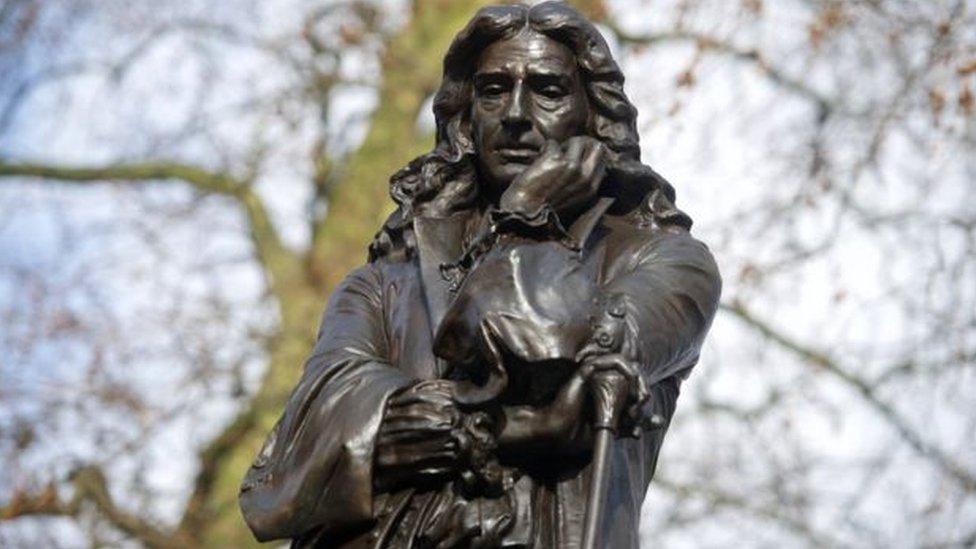Jersey played 'active' role in transatlantic slave trade
- Published
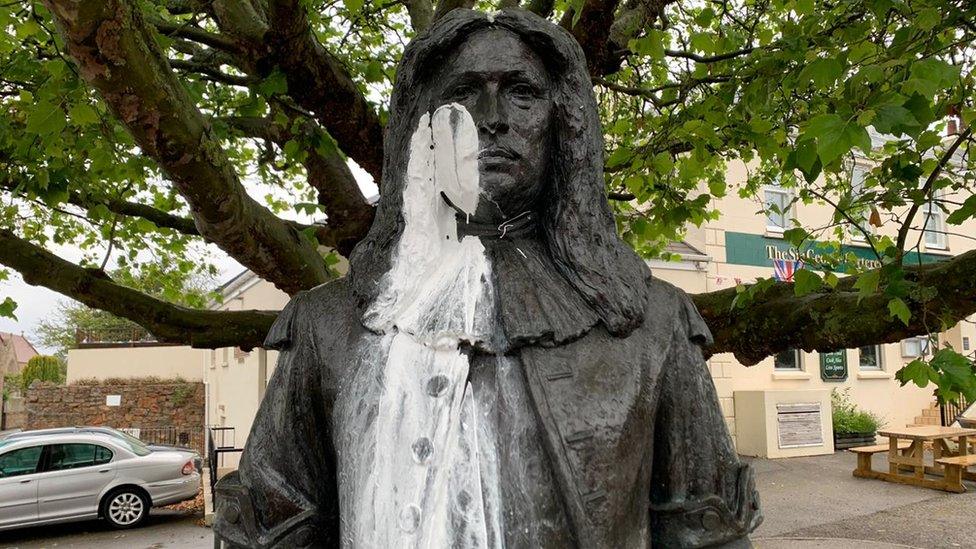
White paint was poured over the statue of slave trader Sir George Carteret in Jersey in 2020
Jersey was "active" in the transatlantic slave trade according to the authors of a new report.
An exhibition on slavery will be held at the Jersey Museum in 2022 in line with a recommendation in the report.
The guest curator of the exhibition hopes it will promote "understanding of the ways in which racial inequality continues to permeate our systems, structures and society today".
It is the first of a series of reports about "previously excluded voices".
A statue in Jersey of slave trader Sir George Carteret was covered in white paint in June 2020.
Jade Ecobichon-Gray, a member of Jersey Heritage Diversity Group (JHDG) and guest curator for the 2022 project, said the exhibition marked "a move towards a more authentic, inclusive and representative history".

Jade Ecobichon-Gray is the guest curator for the exhibition on slavery to be held in 2022
She said it was "incredibly difficult" to research the lives "of so many men, women and children forced into chattel slavery as part of the transatlantic slave trade, particularly as my ancestors were themselves enslaved in the Caribbean".
Ms Ecobichon-Gray said the research had "brought with it a deeper, nuanced and more honest connection with the island I call home, and my hopes for its future".
In October 2020, the States of Jersey rejected calls to rename a square linked to the 18th Century slave trader William Trent.
Trenton Square is named after the capital of New Jersey in the US, which takes its name from Scottish-born William Trent.
'Shock or guilt'
Vic Tanner-Davy, head of equality and diversity charity Liberate Jersey, said: "Research into Jersey's links to the transatlantic slave trade has uncovered that Jersey was not a bystander in the trade, as has often been suggested, it was active in it.
"For a white audience the fact that an exhibition tackles a subject that makes us feel discomfort, shock or guilt should not deter us from learning more about how Jersey profited from the traffic in human beings."
The report shows how individuals from Jersey such as Joshua Mauger profited from slavery.
Mauger, from St John, moved to Halifax, Nova Scotia where he traded in enslaved people and later returned to England and became MP for Poole.
He left his wealth to his nephew Philippe Winter Nicolle who set up his own merchant business in Jersey and built No 9 Pier Road - now part of the Jersey Museum.
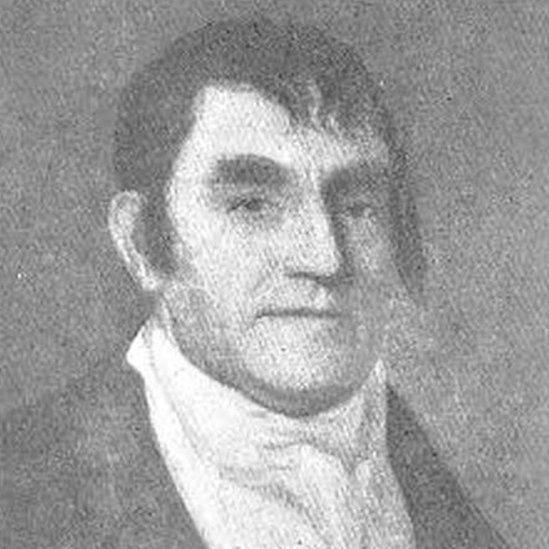
Joshua Mauger from Jersey set himself up as a slave trader in Nova Scotia
The JHDG was set up in 2020 in the wake of the killing of George Floyd in the United States and the abuse received by black footballers playing for England.
Louise Downie, Jersey Heritage's director of curation and experience, compiled the report, which she said was about "gathering facts through documented research, presenting these facts, educating people and allowing people to come to their own conclusions".
She said: "It's about looking deep into the past and seeing how it impacts on our culture today.
"We can't change the past but history is something that is written every day."
The exhibition will open in the Victorian House at Jersey Museum on 23 August 2022, International Day for the Remembrance of the Slave Trade.

Follow BBC Jersey on Twitter, external and Facebook, external. Send your story ideas to channel.islands@bbc.co.uk, external.
Related topics
- Published21 October 2020
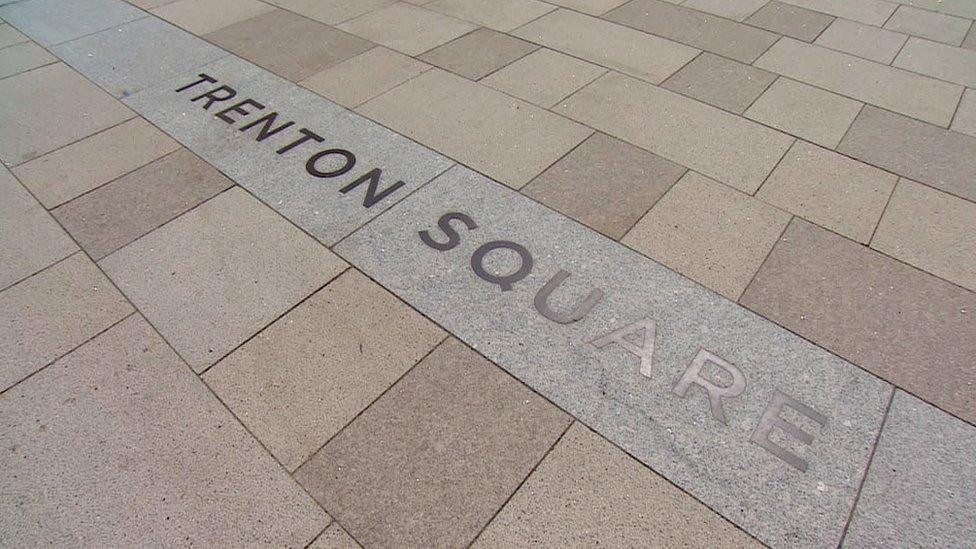
- Published7 October 2021
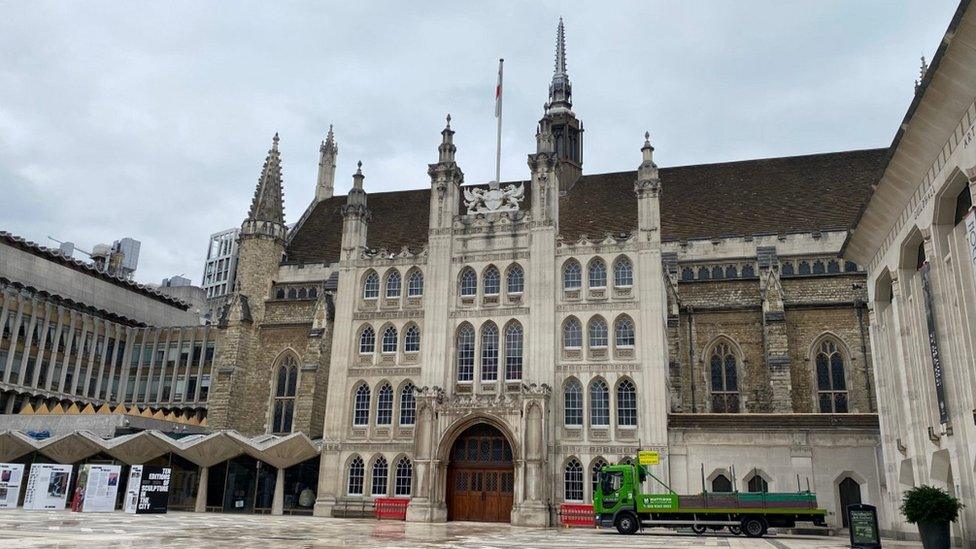
- Published11 June 2020
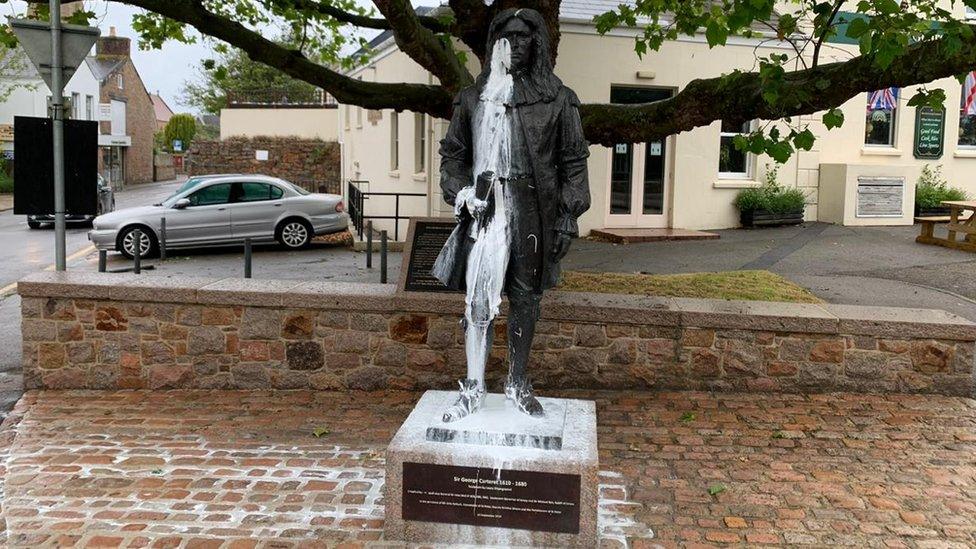
- Published30 May 2021
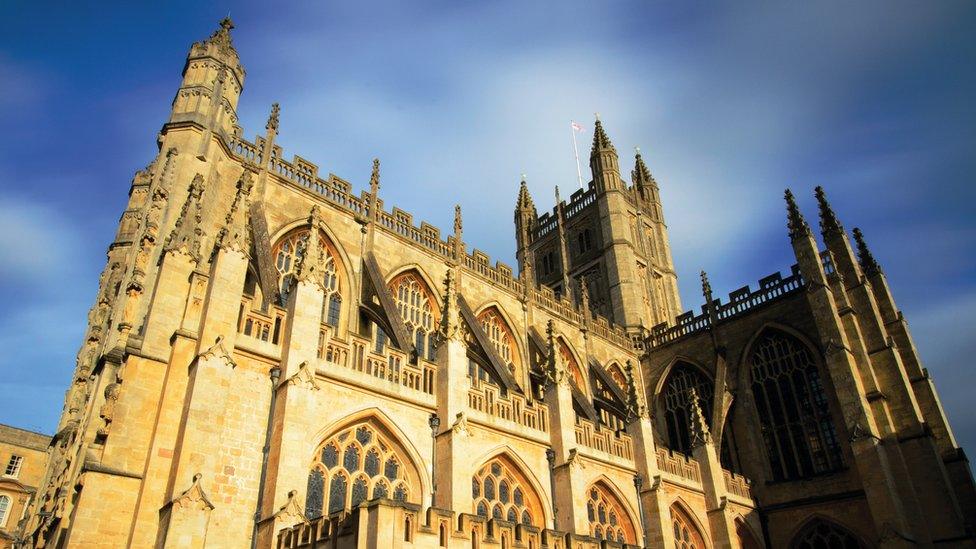
- Published2 March 2021
